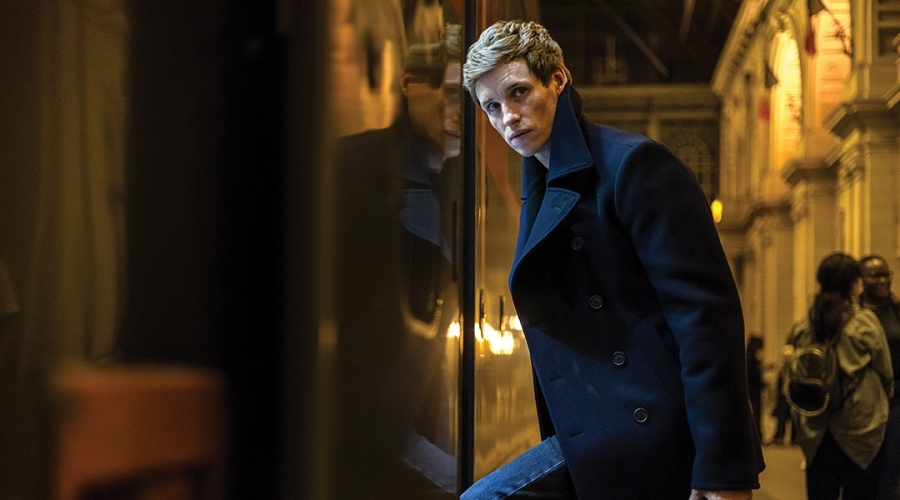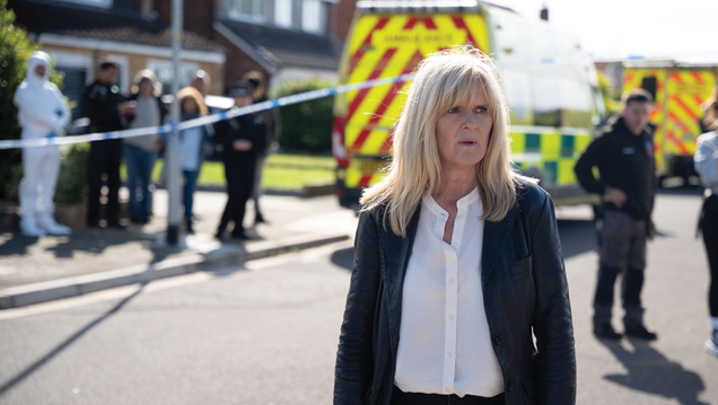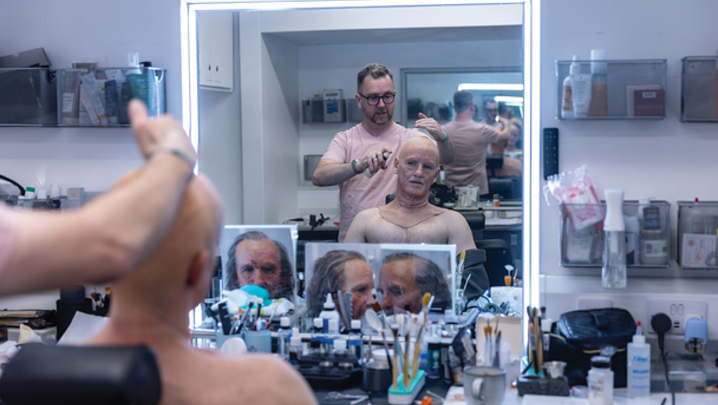The mission: to reinvent The Day of the Jackal as a 10-part TV series. Shilpa Ganatra finds out how Sky did it
Brian Kirk speaks for a generation when he recalls watching The Day of the Jackal on TV as a child. “Even then, it felt genre-defining,” says the director. “It had this enormous manhunt with a sense of consequence and incredible plotting, great set-pieces, sustained tension. It felt like it was in the real world, with a real ticking clock, which left a big impression.”
Based on Frederick Forsyth’s bestselling novel, the 1973 movie starred a brilliantly suave Edward Fox as a hired killer (code name: the Jackal), seeking to assassinate French President Charles de Gaulle while on the run from the international forces closing in on him.
The innovative film, directed by Fred Zinnemann, earned Oscar, Golden Globe and Bafta nominations, becoming one of the defining movies of the 1970s and a blueprint for high-octane spy films.
So why remake it for TV, and as a 10-part series? Especially since a 1997 remake – The Jackal, starring Bruce Willis and Richard Gere – misfired spectacularly? Carnival Films, best known for producing Downton Abbey, saw a “natural synergy” with The Day of the Jackal, says Nigel Marchant, the company’s Managing Director. “It’s quintessentially British, but it needed to feel global and stand up to the best shows in the world.”
It helped that Carnival had access to the rights via sister company Universal Pictures. “But we sat on the idea for a while, to work out how to protect the original brand while making it better,” says Marchant.
Early on, Carnival knew it didn’t want to make a period version of the original story along the lines of ITV’s recent reboot of the 1965 spy movie The Ipcress File. So how could it play to the strengths of episodic television, and how could it be updated?
That was the job of writer Ronan Bennett, best known as the creator of Top Boy. Kirk says: “With Top Boy, he brought us close to characters who hadn’t occupied centre stage before, and he introduced us to moral dilemmas that we hadn’t experienced on television. That sensibility helped to open up and reimagine the story.”
"Frederick Forsyth was enthusiastic and very supportive"
Crucially, the changes were approved by Forsyth. Marchant says: “We talked to Frederick at the very beginning and told him how we wanted to tackle it. He was enthusiastic and very supportive. We shared scripts with him. He liked Ronan’s vision for it.”
Bennett transplanted the core drama of the original – “the cat-and-mouse tension, the central Europeanness of it, the spy craft”, says Marchant – to the modern day. The Jackal’s targets are now fictionalised figures that resonate as threats today. At first, it’s a German far-right politician; then it’s Ulle Dag Charles (Khalid Abdalla), a tech bro whose new software threatens to expose his fellow billionaires. Alongside these updates, there are more sophisticated ways of disguising guns, and more advanced prosthetics for the Jackal to change identity.
The remake stars Oscar-winner Eddie Redmayne as the shape-shifting hitman, who is being hunted down by MI6’s Bianca, played by Lashana Lynch. It’s an inspired piece of casting: Lynch broke barriers as the first black female 007 in No Time to Die. Redmayne replicates Fox’s debonair Englishness. And, as Gareth Neame, Executive Chairman of Carnival Films, says: “Eddie is a meticulous actor, and that’s exactly what’s required with all the different accents and prosthetics.”
As in the original, the action happens in glamorous locations across Europe. The first episode takes us to Munich, Paris, London, Sweden, Northern Ireland and Cadiz. That alone demanded a healthy budget. Happily, Sky in the UK and Peacock in America – also from the Comcast family – stepped up as co-producers and broadcasters.
Meghan Lyvers, Executive Director of Original Scripted at Sky Studios, began work on the show when she joined in 2022. “It was probably a very easy yes for us,” she says. “I started in film, and I remember a lot of people talked about it being a touchpoint at the time that Jason Bourne was being developed.
“The remake had a lot of scope and scale, great character work, and the team had been so smart in updating it for a contemporary audience.”
Given the scale, it’s no surprise that filming was an intricate process. “It was a bit like the Jackal planning his operations,” says Kirk. Alongside the big-name cast and multiple locations, every episode features a set-piece action sequence. “In the first, it’s an assassination. In the second, there’s a big shootout in Belarus when Bianca makes an illegal incursion to snatch somebody. In the third, there’s a massive car chase through Munich, which we shot in Budapest on an LED stage.”
"The team has been so smart in updating the story for the audience today"
The Hungarian capital was chosen as operational HQ, and not only because Carnival had spent much of the previous 12 years there, filming Dracula and The Last Kingdom. Its aesthetic meant it could pass for many European countries. Countries it couldn’t replicate were usually easily accessible. Hungarian tax perks for film-makers made the budget go further. “You use your wiles to put the budget on the screen rather than wasting it,” says Marchant. “Filming in Budapest meant we weren’t constantly on the move, like a circus.”
That, of course, doesn’t guarantee smooth running on such a complex shoot. Neame says: “I’ve done this for 35 years, and I know you can’t rest on your laurels. Whether it’s a big or small budget, there’s always going to be about 100 key decisions. The more you get right at the start, the better chance you have of it being a success.”
Fans of the original film will find “Easter eggs” along the way, “whether that’s the art direction, costumes or the scenes themselves,” says Neame. “One example is the scene when the Jackal uses a watermelon as target practice, which is a shot-for-shot replica.”
The music is a mix of needle-drop moments (such as Avicii’s sassy cover of Feeling Good, and Alt-J’s Tessellate) to give it a contemporary feel, and a timeless, tense score created by Volker Bertelmann, famed for Lion and All Quiet on the Western Front. Kirk says: “He inhabits character in such a striking way and is a real world-builder.”
But is remaking Jackal with a starry cast tantamount to playing it safe? No, insists Lyvers. “We can fall into a trap of thinking that, because it’s a known IP, it’s going to work. The execution is still incredibly important because there’s a lot of choice for [viewers] these days. You don’t know if it has an audience until you’ve done all the work, marketed it, and put it out there.”
She concludes: “Ultimately, as a subscription service focusing on originals, it’s about having content worth paying for. The Day of the Jackal is a global tentpole series, so the stakes are high, but first and foremost we want audiences to love the show and be superfans.”
The Day of the Jackal launched exclusively on Sky Atlantic and Now on 7 November.







